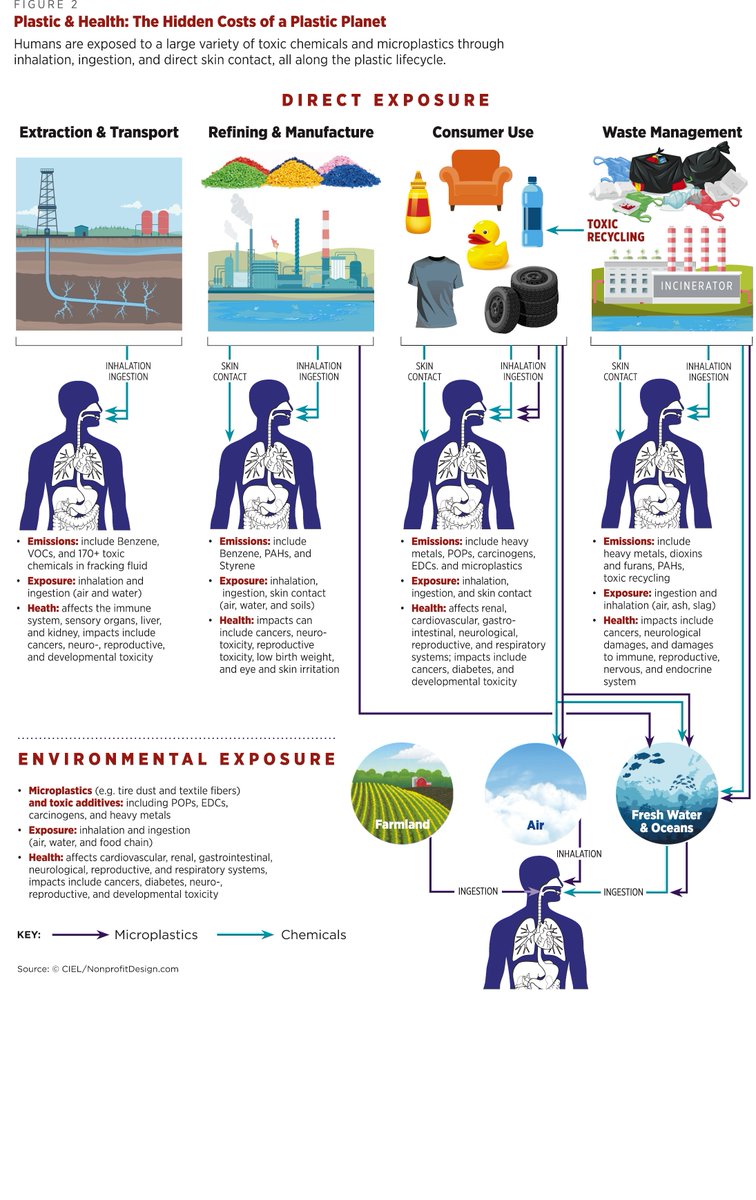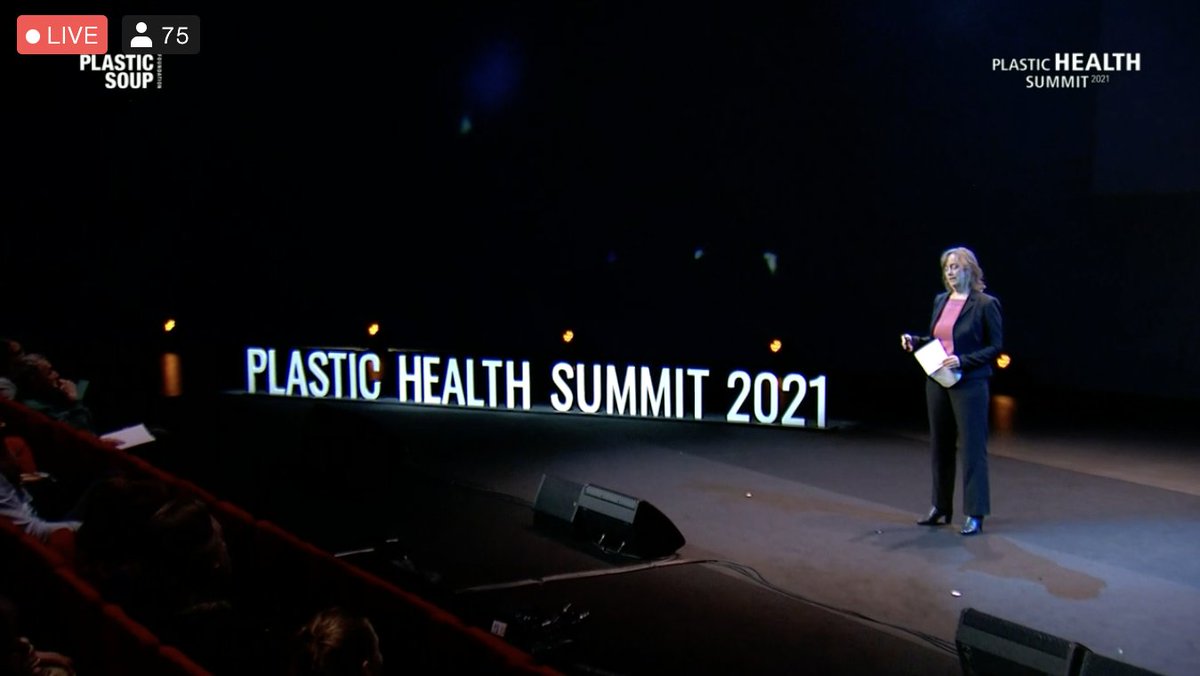
Three years ago, we joined partners around the world in releasing a landmark report that examined the impact of the full life cycle of plastic on health.
Read that report here: bit.ly/37timWo
#PlasticAndHealth #BreakFreeFromPlastic #WorldHealthDay2022
Read that report here: bit.ly/37timWo
#PlasticAndHealth #BreakFreeFromPlastic #WorldHealthDay2022

From extraction to refining, use to waste management, plastics pose a serious health whether people experience them through direct or environmental exposure.
Since then, the needle has only moved.
Here's just some of the developments:
Since then, the needle has only moved.
Here's just some of the developments:

In 2019, scientists announced that the average person eats *at least* 50,000 particles of microplastic a year and breathes in a similar quantity. theguardian.com/environment/20…
Microplastics have been found in placentas: theguardian.com/environment/20…
They're the culprit in damage to human cells: theguardian.com/environment/20…
A study announced that microplastics have been found in human blood for the first time: theguardian.com/environment/20…
And just yesterday, it was announced that microplastics have been discovered deep in human lungs: theguardian.com/environment/20…
Scientists have warned: A largely unregulated plastics industry and the national and international policy frameworks that support and subsidize polluting industries present a grave threat to human and ecosystem health, human rights, and climate stability. plasticstreaty.org/scientists-dec…
In March, the global community united behind establishing a #PlasticsTreaty that seeks to address the full life cycle of plastics — from tap to disposal.
That treaty has the potential to have a substantial impact on human health.
That treaty has the potential to have a substantial impact on human health.
https://twitter.com/ciel_tweets/status/1499304141038002176?s=20&t=gvxT46RC5HFpTd78XklaOA
On this #WorldHealthDay2022, learn more about why the #PlasticsTreaty is a major opportunity to #BreakFreeFromPlastic and to address a major threat to human health from @rebecca_altman and @treeonplastics: theatlantic.com/science/archiv…
Then take action to tell global policymakers that enough is enough: Now is the time to stop the #PlasticsCrisis.
If you represent an organization or are a scientist, join the movemement here: plasticstreaty.org
If you represent an organization or are a scientist, join the movemement here: plasticstreaty.org
• • •
Missing some Tweet in this thread? You can try to
force a refresh












